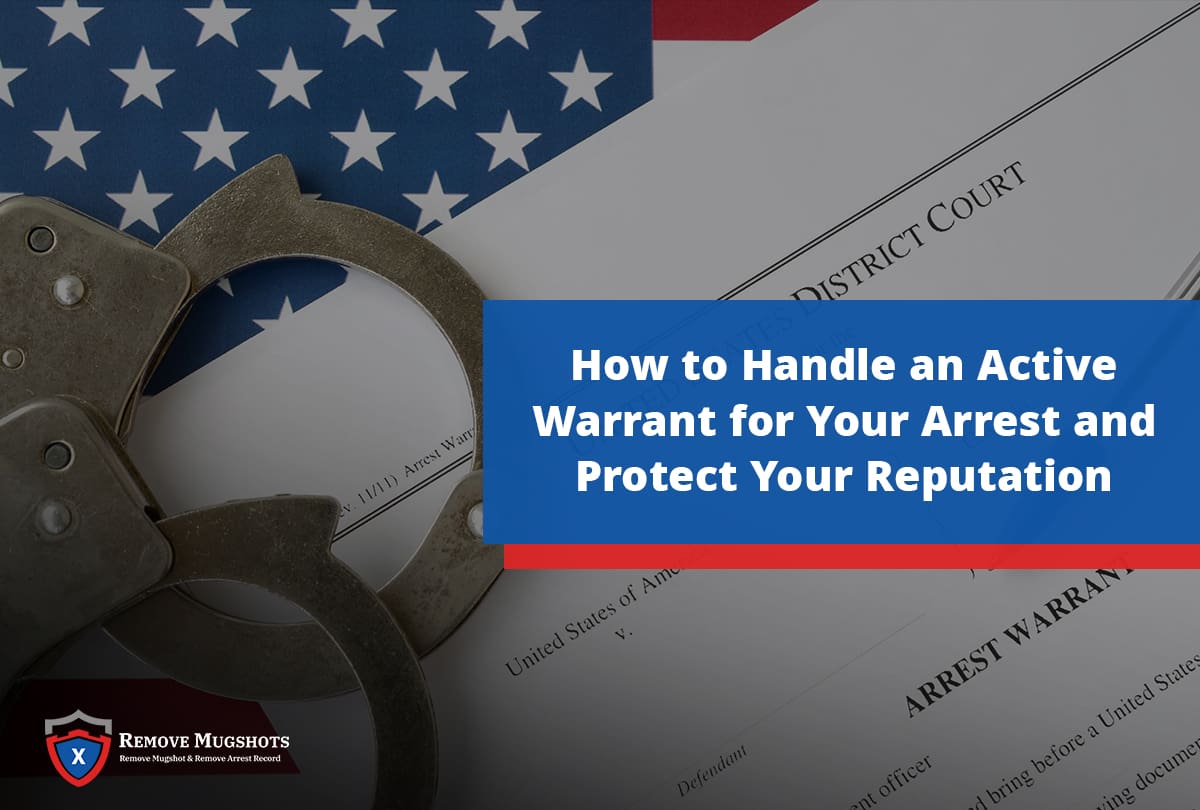How to Handle an Active Warrant for Your Arrest and Protect Your Reputation
December 16, 2024 Legal Tips

An active warrant can significantly impact your life, often leading to unexpected interactions with law enforcement. It’s important to understand what an active warrant is, why it’s issued, and how it can affect you.
What Is an Active Warrant?
An active warrant is a legal document issued by a judge or magistrate that authorizes law enforcement to arrest someone based on probable cause that they have committed a crime. These warrants, including bench warrants, can relate to a variety of offenses, from minor infractions to serious crimes, and are a critical part of the criminal justice system.
In places like Stamford, Fairfield County, and others, understanding active warrants, including how they are issued and how to search for them on a web page or website, is crucial to managing any legal risks that may arise.
Why Is an Active Warrant Issued?
Active warrants are typically issued when law enforcement has probable cause to believe an individual has committed a crime. This legal document is a formal request from the court to take action, usually following an investigation where evidence has been gathered. Several factors contribute to the issuance of an active warrant, such as:
- Investigative Findings: Police investigations often gather key evidence or witness statements that may lead to a warrant request.
- Corroborating Evidence: A collection of evidence strengthens the case and makes it more likely that a warrant will be issued.
- Victim Statements: Testimonies from alleged victims can also play a role in confirming the need for police intervention.
An outstanding warrant indicates that criminal charges may follow, which could lead to an arrest and legal consequences that may affect your future.
Consequences of Having an Active Warrant
Having an active warrant means that law enforcement can arrest you at any time, and this could happen in various situations, like a routine traffic stop, at home, or even at work. An arrest can disrupt your life and negatively impact your reputation. Here are some possible consequences:
- Apprehension at Work: Being arrested at work can be embarrassing and harm your professional image.
- Facing Additional Charges: If you’re apprehended while committing another offense, additional charges could be added to the warrant.
- Increased Anxiety: The threat of arrest can cause stress, affecting your daily routine and mental health.
Understanding the consequences and your rights is essential, and consulting with an attorney can help you handle this situation effectively.
How to Check If You Have an Active Warrant
To find out if you have an active warrant, you can search local law enforcement or court databases, which often include public warrant searches. Additionally, contacting a criminal defense attorney is a smart step to ensure you’re fully informed and prepared.
Here’s how you can check:
- Visit local law enforcement or court websites for public warrant search tools.
- Provide your personal information, such as your full name and birthdate.
- Check multiple online databases that aggregate public records.
If you find that there’s an active warrant, it’s highly recommended to seek legal counsel to understand your next steps and rights.
Types of Warrants
Warrants come in different forms, depending on the case:
- Arrest Warrants: Issued when there’s probable cause that someone has committed a crime, allowing law enforcement to arrest them.
- Surrender Warrants: Typically issued for probation violations or custody disputes, requiring the individual to present themselves to authorities.
- Search Warrants: Allow law enforcement to search property or seize evidence.
- Traffic Warrants: Issued for failure to address traffic fines or violations, leading to arrest if unresolved.
Understanding the type of warrant helps in navigating the legal process effectively.
How to Handle an Active Warrant
If you discover you have an active warrant, it’s crucial to address it promptly. Consulting with a criminal defense attorney is essential—they can provide guidance, analyze the details of the case, and help you understand the best course of action.
A lawyer can help:
- Review the warrant’s details and identify possible defenses.
- Discuss options like voluntary surrender or negotiating plea deals.
- Protect your legal rights throughout the process.
What Are Your Legal Rights with an Active Warrant?
When facing an active warrant, it’s important to know your legal rights. These include the right to legal representation and the right to remain silent during interactions with law enforcement. Understanding these rights ensures you don’t inadvertently harm your case.
Can You Be Extradited for an Active Warrant?
If you’re located in a different jurisdiction from where the warrant was issued, extradition could be a possibility. This process requires cooperation between jurisdictions and may involve legal representation to navigate the complexities of international law. A lawyer can guide you through the extradition process and protect your rights.
Should You Turn Yourself In?
If there’s an active warrant, you may consider voluntarily turning yourself in. In some cases, this can lead to more favorable treatment during legal proceedings. However, it’s crucial to consult with an attorney before making this decision, as it could have significant consequences, including immediate detention or penalties.
Protecting Your Reputation with an Active Warrant
Having an active warrant can affect your public image. To protect your reputation, it’s important to manage how the situation is perceived by others. Consider:
- Establishing a Communication Plan: Develop a strategy for addressing media inquiries and public concerns.
- Responding Promptly: Address rumors or misinformation quickly to avoid further damage to your reputation.
- Seeking Professional Help: Work with PR specialists or legal advisors to ensure your narrative is communicated effectively.
Being transparent and honest can help maintain your credibility during this challenging time.



